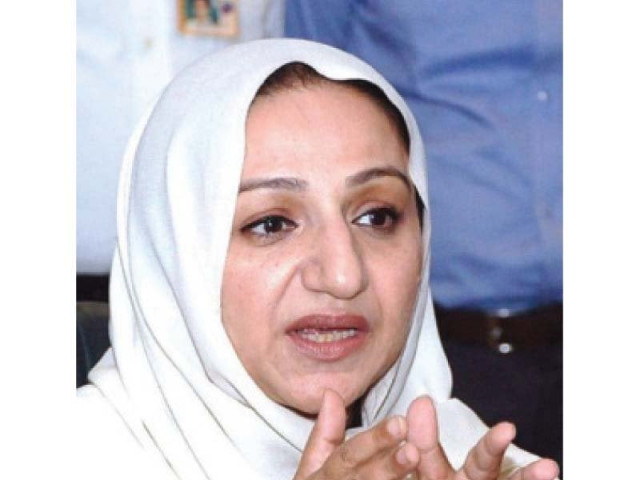Polio drive: ‘No laxity will be tolerated’
Minister says proportion of positive environmental samples all time low.

Minister says proportion of positive environmental samples all time low.
She said this on Thursday while chairing a meeting held to review the progress of Pakistan’s polio eradication programme and to discuss the challenges faced by the polio eradication programme in Karachi, northern Sindh and southern Khyber-Pakhtunkhwa (K-P) as well as of campaign quality issues in Fata, K-P, Quetta, and the bordering areas of Afghanistan.
Tarar, while chairing the meeting appreciated the role of the federal and provincial governments as well as partners and termed interruption of polio virus in 2016 as the top most priority of the ministry.
The minister congratulated programme and partnership on huge success of the community-based vaccination initiative in various provinces and urged its expansion in all core reservoir areas.
The minister however, expressed concern on suboptimal campaign quality observed during last low transmission seasons in northern Sindh and Islamabad.
She said Pakistan and Afghanistan were the only two last remaining countries with polio as Pakistan had reported 12 cases in 2016 against 28 reported in corresponding period of 2015.
Tarar said that the proportion of positive environmental samples were at an all time low, down to around 10 per cent with chronically positive sites of Karachi (Gadap Town), and Peshawar (Shaheen Muslim Town), turning negative after a long time.
“With these positive indications at the start of the low transmission season, Pakistan should be able to make it in 2016 through concerted efforts and support from everyone,” she added.
Coordinator of the National Emergency Operation Centre, Dr Safdar Rana briefed the participants on programme progress and also shared remaining obstacles and opportunities.
About continued decline in case count and proportion of positive environmental samples, the coordinator paid rich tribute to the country team and frontline workers for vaccinating 280 million children during nine campaigns conducted in the low-transmission season.
“The successful IPV-OPV campaigns in targeted high-risk areas of Karachi, Peshawar and Quetta block helped in quick immunity boosting of approximately three million vulnerable children,” Dr Rana said and added that the community-based vaccination and health camps helped in enhanced community ownership of the programme interventions.
Published in The Express Tribune, June 24th, 2016.



















COMMENTS
Comments are moderated and generally will be posted if they are on-topic and not abusive.
For more information, please see our Comments FAQ